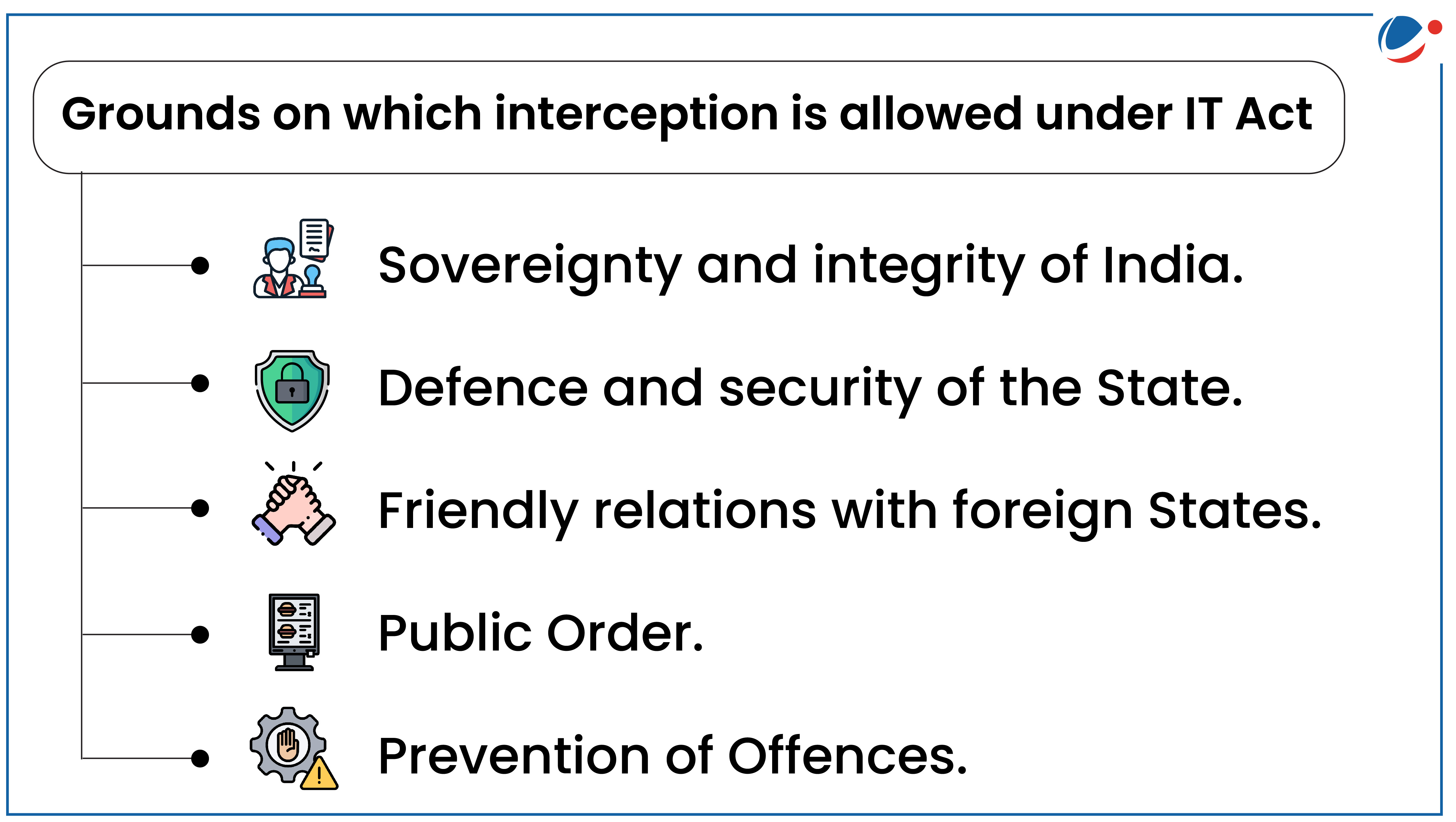Centre has notified new rules under Telecommunications Act, 2023, replacing Rules 419 and 419A of the Indian Telegraph Rules, 1951.
Key Highlights of the Rules
- Power to issue order:
- Competent Authority: Union Home Secretary (or Home Secretary at state government level) or an officer, not below the rank Joint Secretary with proper authorization.
- Authorised Agency: Any other agency as authorised by Central Government.
- For remote areas or operational needs: Orders could be issued by the Head or second senior most officer of the authorised agency (at Central or State level)
- Interception Duration: Orders are valid for 60 days and extendable up to 180 days.
- Obligations relating to Interception: Authorized agencies must appoint two nodal officers to communicate interception orders to the DoT nodal officer or the telecom entity’s nodal officer.
- Safeguard Mechanisms:
- Review committee: A Central Review Committee (led by the Cabinet Secretary) and State Review Committees ensure bi-monthly reviews of interception orders to ensure compliance.
- Destruction of records: Interception records must be destroyed every six months, unless required for functional requirements or court directions.
Key concerns
- Increased discretionary powers with limited supervision.
- No judicial or parliamentary oversight, relying solely on executive review.
- Exemption for testing interception systems by the government may enable unchecked surveillance.
 Judicial Pronouncement on Power of interception
|



